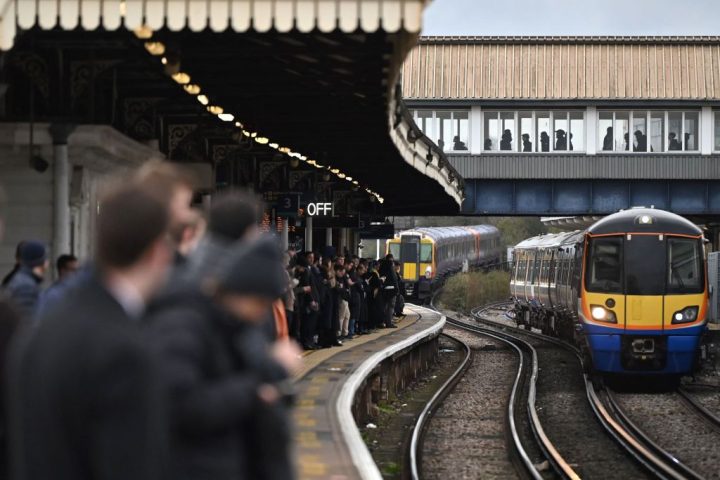As they call yet more strikes today and tomorrow, rail unions are the leading candidates for the most miserable and destructive institutions in contemporary Britain. Train operating companies, though, are not far behind.
Having ripped us off for years by ruthlessly exploiting the local monopolies gifted to them through the franchise system they can’t even run their trains on time on non-strike days. First Group, which was finally relieved of its Transpennine franchise this week, managed to run just 46.5 per cent of its services on time during the last three months of 2022. Avanti West Coast, which for the moment retains its franchise – though God knows why – managed only 34 per cent. And that was after reducing its timetable by two thirds in some cases.
Government and train operating companies have encouraged the unions to make ever more brazen demands
These companies are now pleading to keep their franchises by arguing that if they lose them it will be taken as a victory for the unions. The seizure of the Transpennine service, which for now will be run by a state-owned company, is, according to an unnamed rail executive this morning, ‘a win for the trade unions. The unions have sabotaged the operators in this instance and the government has handed over victory…. Operators will be appalled by the decision. It shows that if you sabotage the operator enough, the government, in the end, will end the operator’s contract.’
To which the obvious question is: why have you allowed the unions to sabotage you? The truth is that the old British Rail was less bad at dealing with unions than the privatised rail companies have proved. British Rail did at least manage to keep salaries down to affordable levels and to challenge some of the Spanish practices – refusing, for example, demands by unions that every train travelling at over 100 mph should have two drivers.
British Rail, too, succeeded in introducing driver-only operated trains, in the face of union opposition. Deleting guards, whose jobs had been made largely redundant by improvements in signalling technology in the mid 20th century, kept costs low and allowed a large expansion in services. Around a third of train services are now driver-only.
Yet in spite of driver-only operation proving every bit as safe as having a guard on board, that is as far the technology has been allowed to spread. Why? Because train operators have thrown in the towel. They have found it easier to cede to unions’ demand to keep guards on trains – and then go pleading to the government for money subsidies to cover the costs. It is the same with wages, which have ballooned since privatisation. The train operating companies give way to union demands, knowing that the government will just continue shelling out more subsidy – to the point at which in the year to last March, railways cost the taxpayer £13 billion to subsidise day to day running costs.
Privatisation was supposed to transfer financial risk to private enterprise, but it did no such thing. Between them, government and train operating companies have encouraged the unions to make ever more brazen demands. Rail companies have no cause to bleat about losing their franchises – they have brought it upon themselves by being too feeble to challenge the unions at an earlier stage.







Comments